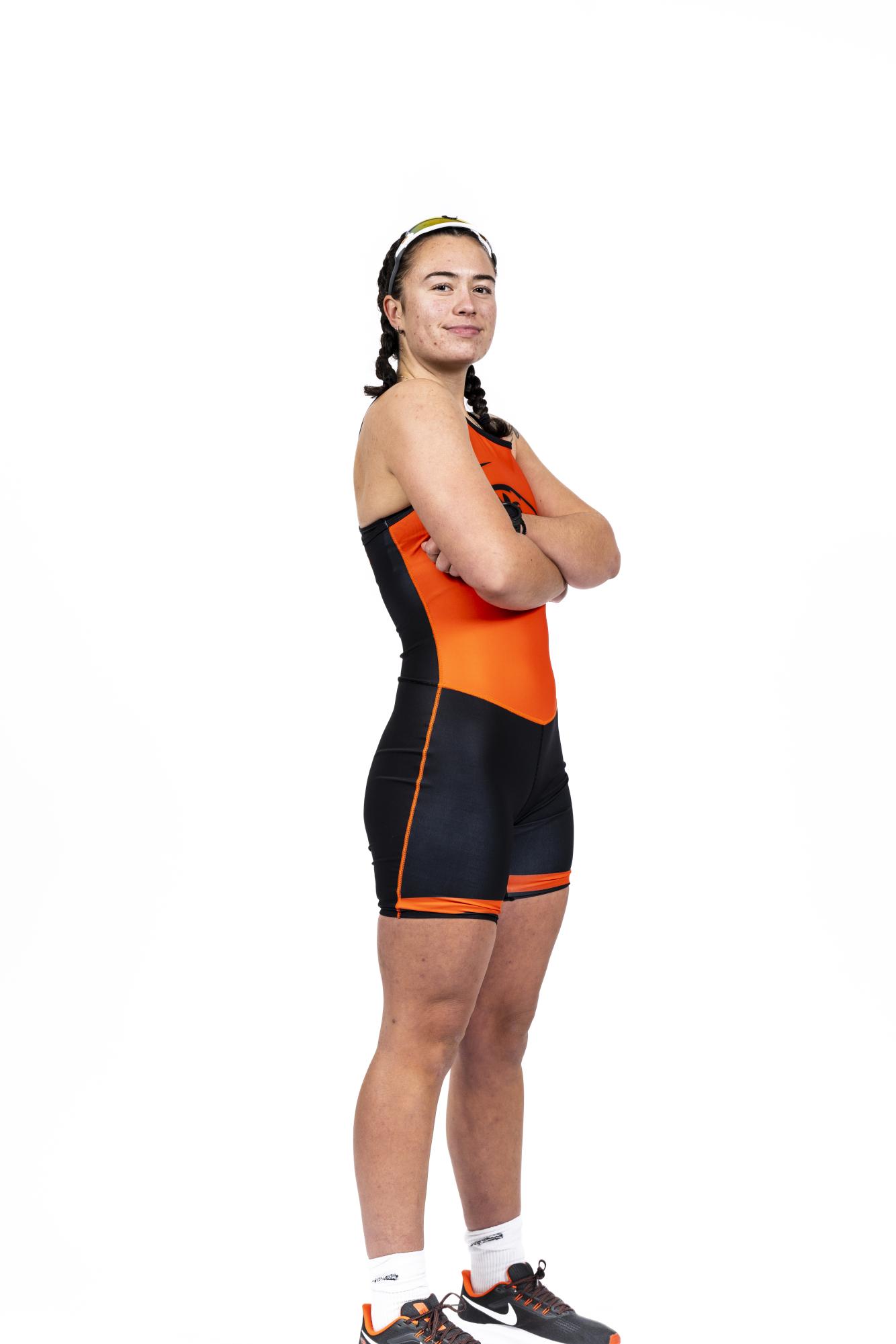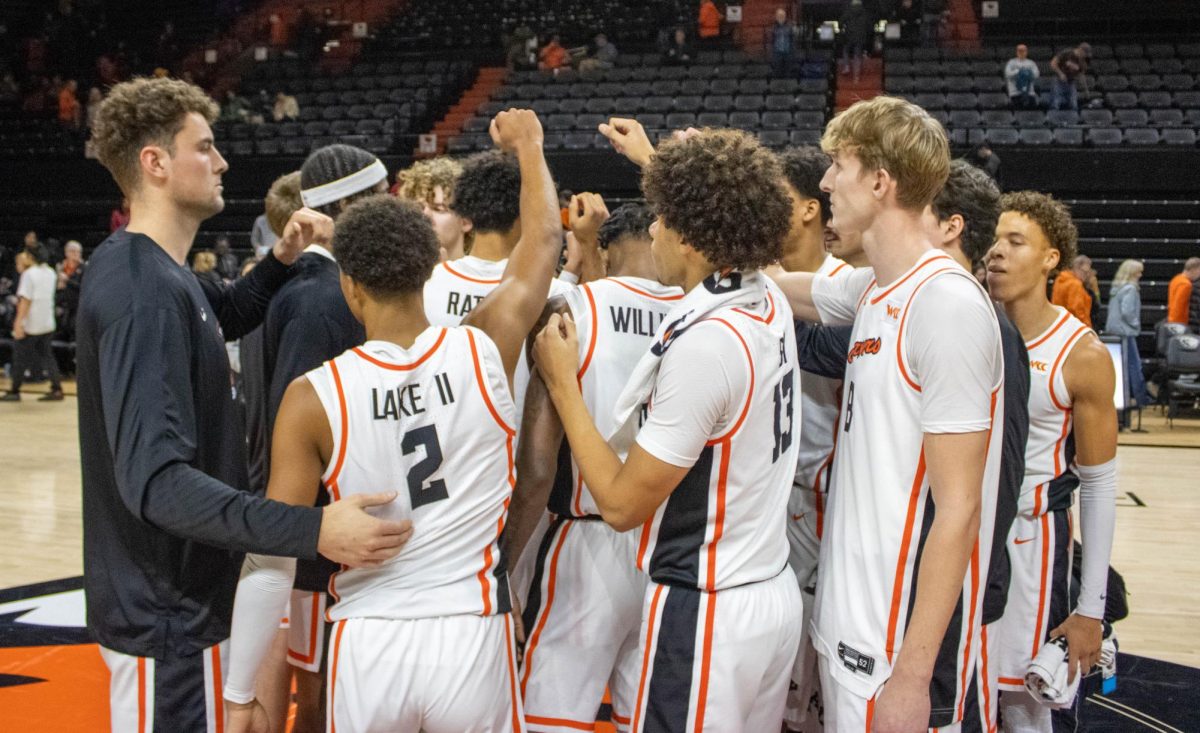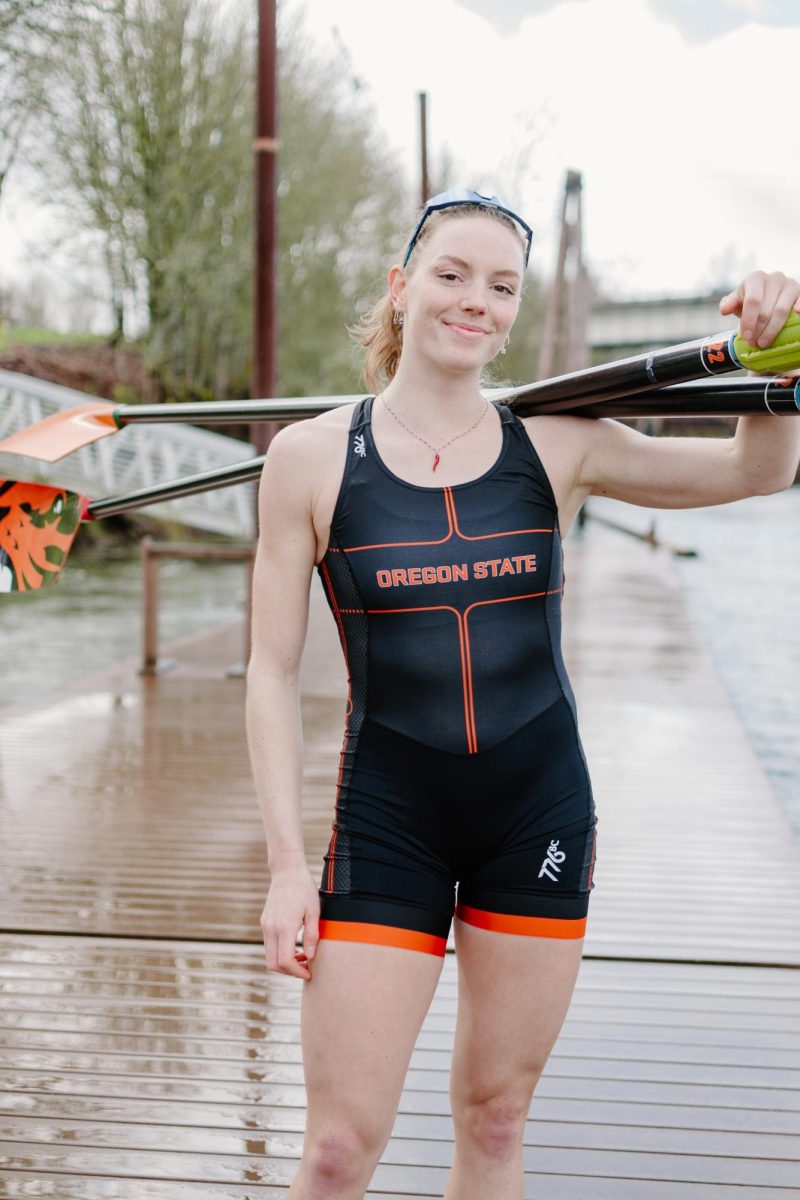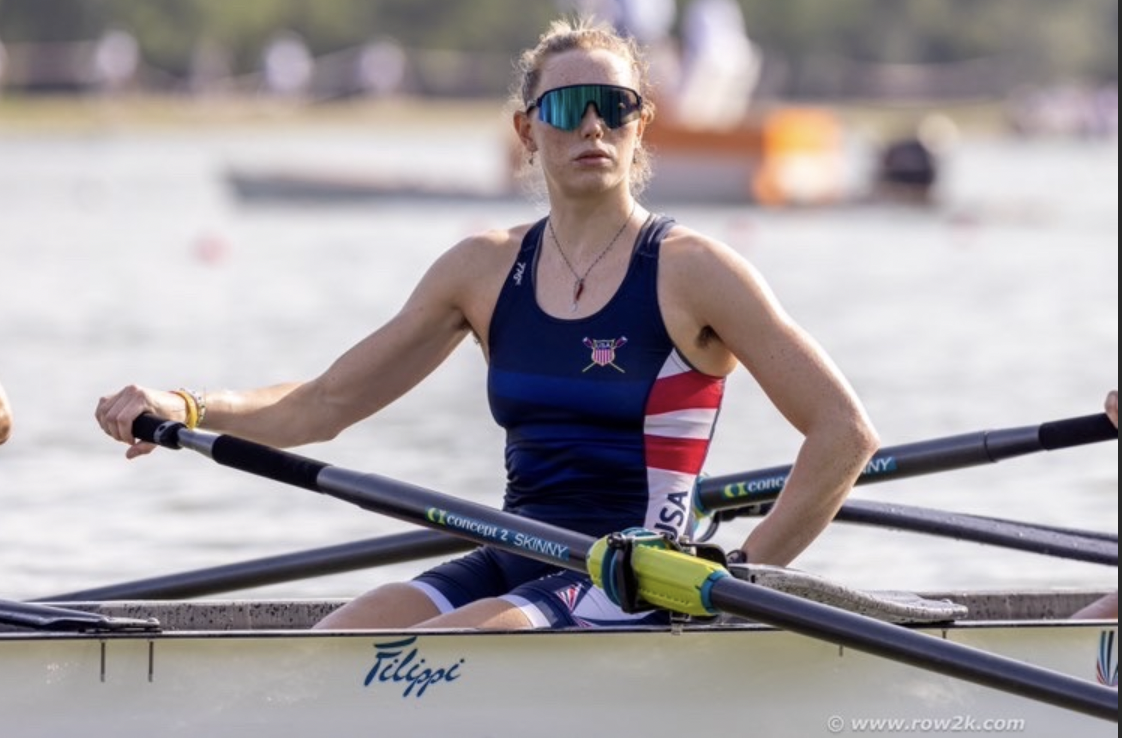As a university with a diverse population, Oregon State University seems to have students from every walk of life and identity group. Yet not all of these groups, say LGBTQ+ students, have enjoyed acceptance in society.
Step in Rebecca Falash. A student-athlete and president of Beavs Be True, Falash is a changemaker inspiring students to be more comfortable in their own skin and have a safe space to express themselves.
Her changemaking in the Oregon State community is primarily effected through Beavs Be True, a student organization for LGBTQ+ student-athletes, about which Falash said:
“Beavs Be True is a LGBTQ+ safe place for athletes and allies, not just people within the queer community, like people who support the queer community. It’s a place to feel supported by your peers; we have conversations about current topics as well as just hanging out and getting to know people with common interests and common life experiences. It’s pretty much a place to be yourself and meet like minded people and be within the community.”
As a 22 year-old senior and climate science major from Olympia, Washington and member of the women’s rowing team, Falash works with the Ocean Observatories Initiative in performing climate science research. She has plans to attend graduate school pursuing education in the field of environmental science data analytics.
Her journey to Beavs Be True started almost a decade ago, and when asked about her realizing her identity within the LGBTQ+ community, Falash said, “Probably at the end of my freshman year in high school, so nearly seven or eight years ago.”
Falash is a queer athlete who describes herself as “fully out and proud.”
Falash’s leadership in Beavs Be True aims to increase membership and let others know they are accepted as they are; where attendance may have been five to 10 people when she started, it has certainly increased.
”I think our goal is just to create a community where you can feel accepted, and recruiting,” Falash said. “At the end of my freshman year we had about five to 10 people who would attend the meetings, and last year we had 20 to 25 people. This year I am hoping to make them more accessible and help people feel safe in that.”
A motto for her changemaking? How about: “Make a safe environment that is accessible for all.”
Falash is confident in her identity and said, “I probably would identify as lesbian, but being queer is like a spectrum, so I don’t necessarily identify fully to that side. Definitely like lesbian leaning,I guess.”
But this doesn’t make her, or any LGBTQ+ students, different from anyone else. Falash offered the following commentary, “Being queer is no different than being anything else. Just because I like women doesn’t mean that I’m any different than a roommate of mine who is a woman who likes men.”
That conviction spills over into her approach to being a good teammate on the rowing team, which does not have captains. Falash states about leadership that “Everyone’s influence is a bubble, and I hope to lead by example.” Having begun her career in rowing as a junior in high school, Falash has used her opportunities as a student-athlete to empower others.
With an outlook towards activism that is fueled by a supportive community, when Falash was asked how OSU’s resources compare to other universities, she observed that while it is well-equipped to support students, it can still be more.
“It seems like we have a lot of resources,” Falash said. “The university as a whole has the Pride Center and I follow them. We’ve been meaning to do a project with them but we haven’t gotten to it yet. As for athletes, compared to other universities, I think we’ve got a good foundation. (University of Oregon) is just starting a group now and we’ve had one going for four or five years. So, it’s coming along, but I think we definitely have got a greater foundation than some local schools.”
In the present, Falash is working towards increasing membership in Beavs Be True, specifically with helping LGBTQ+ male athletes feel accepted and know that they have a place where they belong.
“A goal of ours is definitely to start improving the gender ratio or the self-identifying gender ratio, as it’s mainly female identifying athletes coming,” she said. “I can’t speak for the queer male community but it is a lot harder to come out. That’s another one of our goals this year.”
Her appreciation for Beavs Be True is one that emphasizes the ability to connect with other athletes.
“I think having this club for example, it’s my way to be accessible to the queer community within athletics.”
When Falash joined the group, she immediately saw the potential for the burgeoning association to become greater.
“I was raised to be very independent and confident within my identity, and I came here and saw a club and I honestly just wanted to get more involved,” Falash said. “It was kind of very small at that point, and I saw the potential, and I saw the community within athletics could be a lot greater. So then I decided to reach out and see what I could do to help assist that.”
And while her experience with activism has largely been positive, Falash understands that not everyone has, or will, have similar encounters.
“I’ve been very lucky within athletics; I’ve always been surrounded by queer communities, my coaches have always been very accepting. I know that others have not always had the same experience, which is very sad. I’m very fortunate.”
But ameliorating the travails of discrimination and exclusion are exactly why Beavs Be True exists, so that attitudes within and towards the LGBTQ+ student-athlete population can be changed, and so that individuals can feel accepted and empowered. Falash sees progress in her work. That isn’t enough; she seeks to pass the torch to future students so that they can take up the mantle of leadership and continue to drive positive change:
“I think we’ve definitely brought up our engagement; especially in the last year-and-a-half, which is definitely a success,” Falash said. “A lot of the attending members were coming from very specific teams, but in this past year I’ve seen a lot of new faces that I don’t necessarily know. On the sign-ups for this year, I don’t know more than half the names, which shows that word is getting out and the club is getting bigger and people are feeling more comfortable attending, which I think is a really big move for the future. Especially since I’m graduating this year, I want to leave the club and pass down the leadership and that’s seeming pretty hopeful for next year.”
As for the future endeavors of Beavs Be True, Falash wants to see more cooperation between groups on campus.
“I definitely think that in this upcoming year we’ve talked as a group and we want to be more involved with the pride center on campus. It’s been very ‘athlete’s only’ (at Beavs Be True), but the Pride Center just seems to be doing a lot of fun things and important educational things and I definitely think that a crossover would be beneficial for both groups.”
Her work imbues her with a sense of pride, a sense of accomplishment, and is all born from a sense of duty to the community. Falash aims to bring change to the hearts and minds of those not just at OSU, but everywhere, so that people can be as they are.
“Don’t be afraid to reach out and talk to someone about it,” she said. “I know that sometimes you can feel very isolated within our societies and being gay is not like a social norm, but there are people out there who you can talk to and people who feel the same way as you and being queer is fun; it’s no different than being straight, you just have to find your community and with that you can grow towards self-acceptance and be happy within your own skin.”
For more information about Beavs Be True, be sure to visit their Instagram, which can be found here: https://www.instagram.com/beavsbetrue/?hl=en















































































































